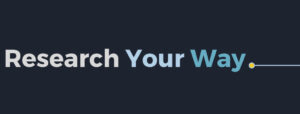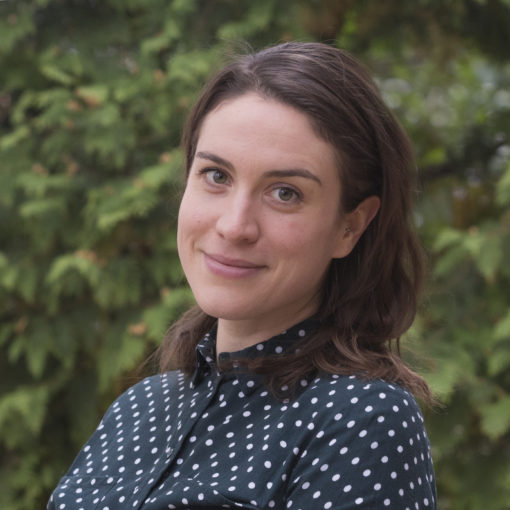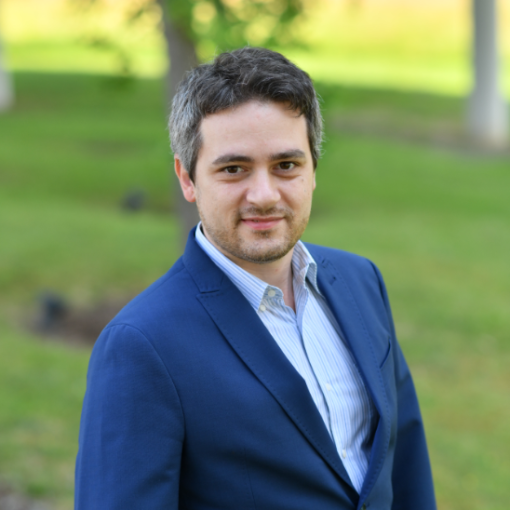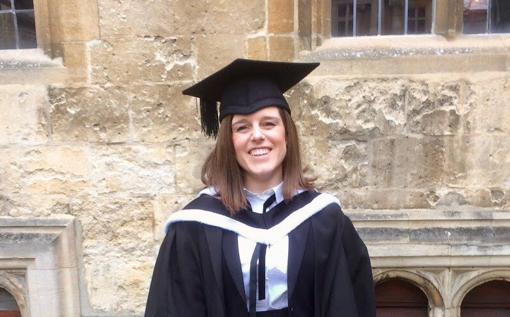PhD in Human Geography, University of Wales, 2006
| Founder & Director | |
|---|---|
| Research Your Way Ltd | |
Year entered into a non-academic position: First in 2005, then back into academia in 2006, then out of academic again in 2019.
Left academia after:
- Immediately post PhD and then again in 2019
- I resigned from a permanent Lectureship after my second child was born so that I could work part-time, research-only on an ESRC grant I was Co-I on. I then left academia altogether at the end of that research contract and set up my consultancy.
What’s your background? I am a social scientist whose academic specialism is family migration and mobility. I have always used mixed methods in my research and this is perfect for research, evaluation and impact consultancy because you often need qualitative and quantitative research skills.
During my PhD (2002–2006), I was approached by a social research company that was a spin-out company from my University and I worked part-time for them. They then offered me a full-time position as a Social Researcher when I finished my PhD. I re-entered academia for my Marie Curie Post-Doc (at University College Cork) and then secured a permanent Lectureship at the University of Plymouth.
My experience of commercial social research was very useful in knowing that my academic research knowledge, skills and experience had value when I decided to transition out of academia for the second time in 2019.
Why did you move away from academia? There were quite a lot of facets to this decision and it was a lengthy decision-making process! Primarily,
I wanted to spend more time with my family and I wanted to do more meaningful research.
I had some sessions with a coach who specialised in coaching women after maternity leave and it was very helpful. Now, I get to do the best bits of what I loved about my academic role – research and teaching/training – through my own Limited Company and I have a much better work-life balance. I have also trained to become an ICF Career and Impact Coach to help others experience the power of coaching, and I have published a bestselling children’s book. I would not have had time to do either of these things if I had stayed in academia.
Is there anything you miss about academia? No. I have all the best bits in the roles I do now.
How did you get this job? Did you face any challenges when considering a move away from academia or applying for the role? I started my own business, so I created my own job. I had no entrepreneurial training or background –
I just decided that if I wanted maximum flexibility over when I worked, and what I did, then I needed to be my own boss. I think we can get caught in a cycle of thinking that the only thing we can do is be an academic, especially if we have been in academia for quite a long time. However, the question should not be ‘What else can I do?’ but ‘What do I actually want to do?’. The mindset shift is the biggest challenge, in my opinion.
What motivated you to/why did you choose the sector you transitioned into? I feel hugely fortunate that I can do a job I love, work flexibly from home, and spend a lot of time with my family.
When you decide to start your own business you have to make a lot of strategic decisions and you have to keep making strategic decisions.
The core of my business is offering bespoke research and evaluation services to social purpose organisations. I chose this market because it is important to me that my work contributes to society positively.
Did you think you had the skills required for your current position before you started? Were you right? I knew I had the right research skills, I was not sure about the business skills! However, I had confidence that I could learn what I needed to or ask more experienced people for help.
As academics, I think we sometimes feel like we should know whatever we need to know without ever asking for help. The alt-ac world is different. In my experience, people are willing to help each other, work together, recommend each other for work, and say ‘well done’ to someone if they do a good job! It’s so refreshing!
How did your PhD prepare you for your current job? For example, what were the transferable skills that you developed during your PhD that are most relevant to your current job? The research and teaching skills that I developed during my academic career prepared me for my current role.
I think there is a lot of focus on transferable skills but it is helpful to think about your unique skills and/or knowledge too as these can command high value outside of academia.
Did you have any preconceptions about your sector that proved to be wrong? I expected the business world to be ruthless and competitive but that has not been my experience at all. I very quickly added people to my network who were incredibly kind in passing work my way and who wanted to collaborate on research bids.
Can you describe a typical week in your job? No week is the same and that is what I love about it! Most of my week is spent on evaluation projects for clients and those focus on a range of social and environmental issues. My working week involves planning, data collection, data analysis, report writing and client meetings – the balance will depend on how many projects I have on at once and the stages they are at. I have coaching clients each week as well and I love helping people gain clarity about their careers and/or helping them to develop strategic impact plans. I don’t work full-time and
I try to get at least one walk a week along my local beach which I call my ‘CEO time’. It is really important to spend time working on your business as well as in your business. For me, this means spending time each week on the strategic development of the business and making sure that it aligns with my values.
What is the workplace culture like? Please include comments on work-life balance, flexibility, remote working? I work flexibly, from home. The company has clients all over the UK and a few in Canada and the USA. Work-life balance is great as I am my own boss. I employ Research Associates and we are a solid team who are focused on delivering high-quality projects for clients who want to maximize their positive impact in communities.
Do people with a PhD frequently get hired in the company/sector? Yes.
Never underestimate your PhD or your academic skills. You don’t have to retrain. You don’t have to start again. Find the organisations who value what you already have and can do.
There are companies who want to hire people with PhDs (in all disciplines). That is their strategy. They know what value a PhD has for their company. Find those companies. If you want to retrain or start over, that’s fine. Just don’t feel like that is your only choice.
What are your favourite parts of your job? I love everything that I do. My favourite part in evaluation is seeing the changes that we recommend in our reports, based on research, being made by clients and their organizations then going on to have even greater positive impacts in communities and in people’s lives. That is hugely rewarding.
My favourite part of coaching is seeing people gain confidence in all that they have to offer the world beyond academia.
What are your reflections on your career path? That is a good question! I have a ‘no regrets’ policy for life and I am an optimist (which is one of the reasons academia was not a good fit!) so I feel that I have always been where I was meant to be, doing what I was meant to be doing. I have made changes, I have taken risks, I have created new opportunities. I have been very fortunate to have met and been helped by amazing people along the way and I try to pay that forward.
Do you have any advice for current graduate students and postdocs considering a career outside of academia? Talk to as many people who have transitioned out of academia as possible. Join many networking groups that exist for ‘alt-acers’ now, ask questions and reflect on the answers. There is a lot more support out there now than there was prior to the pandemic and I think that is a good thing.
Most people with PhDs do not work in academia. That gives you a ready-made network that you can use to guide and secure your next steps. People are the key to a successful transition.
What do you know now that you wish you’d known when exploring a transition?
Everything that you have done and achieved in academia so far has value beyond academia. If you feel like it doesn’t, work on your mindset and surround yourself with cheerleaders. The people who say, ‘You can’t do that’, ‘You won’t be successful’, ‘What else can you do’, ‘It’s too risky’ etc. – put them on mute. Replace them with people who believe in all you have to offer the world. If you have no one to be your cheerleader, join my free Facebook Group and we will cheer you on! @Alt Ac Careers UK.
Can you recommend any relevant resources, organisations or events that might help somebody new to the sector find out more about it? Join LinkedIn. It is the best networking tool for developing an alt-ac career regardless of the sector. Connect with and follow recruiters as well as people in the sectors you think you’d like to move into. If you would like to move into evaluation, the UK Evaluation Society is a good starting point.
I set up Alt Ac Careers UK on Facebook in 2020 to help people transition out of academia. There are about 1700 of us in the group now. There are other Facebook groups that are helpful too – Academics Say Goodbye, The Professor is Out, Academic Womxn Reclaim Your Power, Researchers Who Consult. Roostervane.com is a very helpful website if you need inspiration for what you can do apart from academia. The PostGradual Careers Blog also is very helpful. @altacchat on Twitter is useful too.
My company is Research Your Way Ltd. We provide bespoke research and evaluation services for charities, social enterprises and businesses. We help them to collect, analyse and understand relevant data to maximise the impact of the amazing work they do in communities.
There are work-shadowing opportunities and occasional Research Associate opportunities so if you are considering moving into this type of role, you can contact me through the website contact form.






